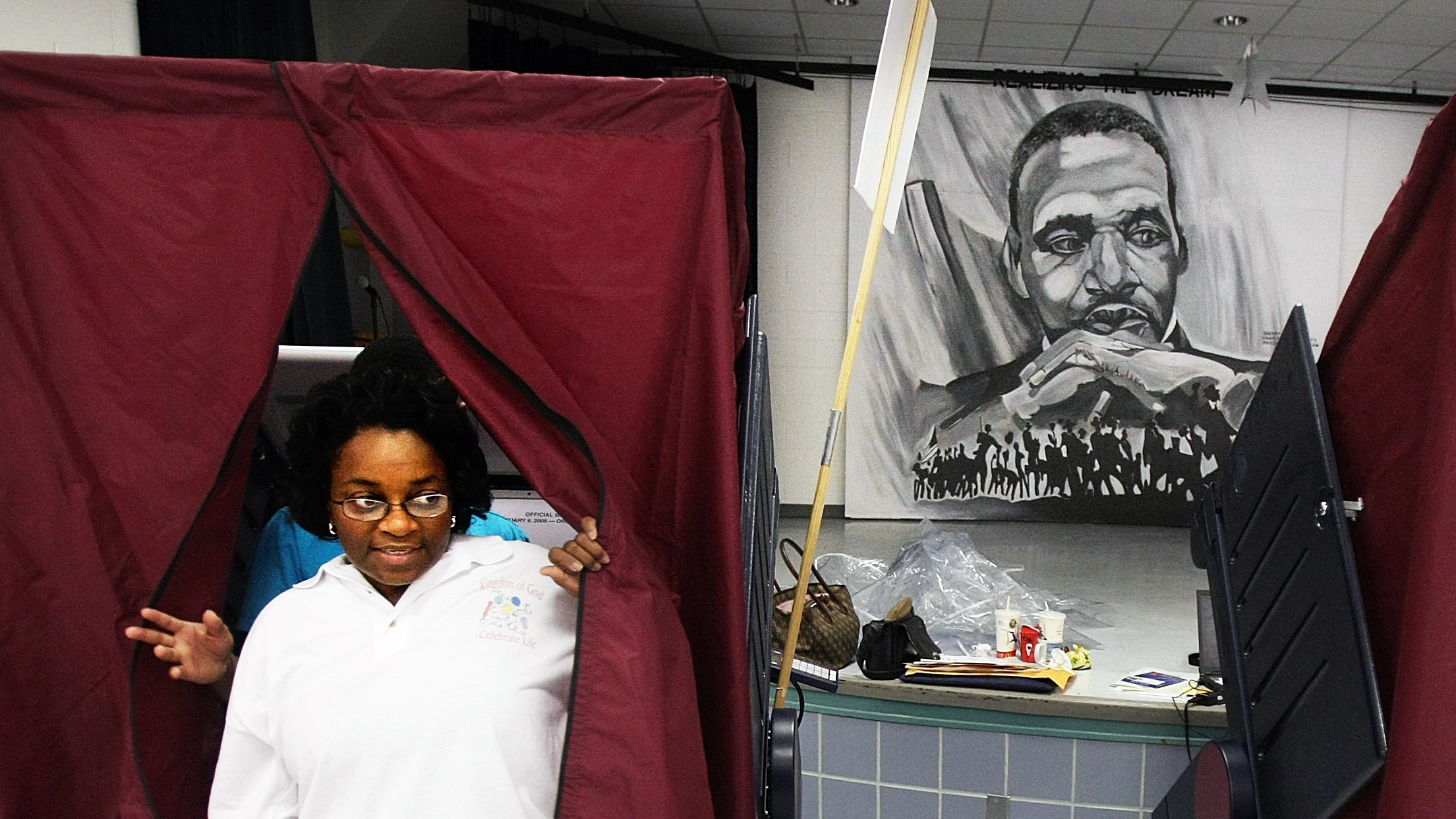Politics & Current Affairs
All Stories
If Americans love their democracy why does voter turnout put them 31st out of 35 OECD nations?
Malcolm Gladwell does a post-mortem of the U.S. presidential election, speaking to issues of sexism and moral licensing, and makes a bold prediction.
Albert Einstein’s political contributions are frequently eclipsed by his scientific achievements. But the physicist was active in political thought, and his insights remain relevant today.
A movement grows to re-examine Columbus’s legacy and abolish his holiday.
We often hear rhetoric comparing certain political leaders and moments to Fascism. But, is that accurate? Perhaps more importantly, is that a good thing?
Remember that one time when a Philosopher King ruled the whole world? Well, here is how that turned out.
According to environmental activist and author Bill McKibben, the third world war is well underway: it is a battle between human beings and a changing climate, and the humans are losing. But there’s still hope.
The President’s consideration and rejection of stating a no-first-strike policy puts the U.S. in a no-win position.
Neil deGrasse Tyson reveals his political and religious views in an amusing fight with a conservative radio host.
The Justice Department announces the end of privately run Bureau of Prisons jails, and activists are excited.
Germany and Japan have far fewer incidences of gun-related violence than the United States. What can we learn from how they regulate firearms to decrease the number of American tragedies?
The GOP wants to repeal the Johnson Amendment, once again uniting church and state.
The 2016 Presidential election, between Hillary Clinton and Donald J. Trump, will be the first without key provisions of the 1965 Voting Rights Act to stop voter disenfranchisement.
A new study reports that political language is becoming more partisan and polarized. How is this new and what effects might this have on our republic?
Americans are as divided as ever, and we may not even agree on what freedom is anymore. The ideas of Isaiah Berlin may shed some light on the subject.
What is former President Bill Clinton’s election endorsement worth to people who were toddlers or teens during his time in office?
Scientists get one step closer to Harry Potter’s invisibility cloak by creating a material that can conceal objects, with far-reaching commercial applications.
The Israeli news organization Haaretz is reporting that a military coup is currently underway in the capital city of Turkey, Ankara. This is a developing story.
Humans like to believe evolution implies progress. As Stephen Jay Gould notes, Darwin warned of this misunderstanding. We may be better at adapting to our present, regrettable circumstances.
In light of the prison sentences of Oscar Pistorius and Lionel and Jorge Messi, we examine why athletes who commit crimes have the luxury of lighter sentencing.
The U.K. has voted to leave the European Union, but here are the scenarios in which it stays in.
Many of our best U.S presidents qualify as psychopaths, while Hitler doesn’t.
Their thoughts were more complex than either side of the gun control / gun rights issue acknowledges.
Science authorities in the United Kingdom are now worried that the country may lose up to $1.4 billion annually in science funding that flows from the European Union.
The City of Philadelphia just became the first major U.S. city to pass a tax on sodas. What does that mean for the average consumer, and how effective are soda bans anyway?
Penn Jillette explains how it’s more respectful to argue than just let anyone believe anything.
“Behavioral politics” can shed light on terrorism’s appeal. And why simple appeals to reason might not work. Indeed rationality doesn’t work the way many think it does. What makes us tick must matter for how reasoning works.
In the past six years, Hungary has gone from democracy to extreme conservatism. Can this happen elsewhere?
As horrific as the Orlando Massacre was, we must not forget the Wounded Knee Massacre, the single worst mass shooting in U.S. history.
Humanity’s languages and moralities evolved for social coordination. And for productive teamwork. Our moral sense, our social-rule processors, work just like our language-rule processors.





























